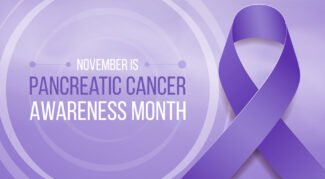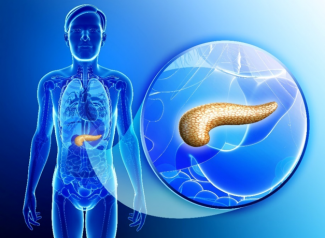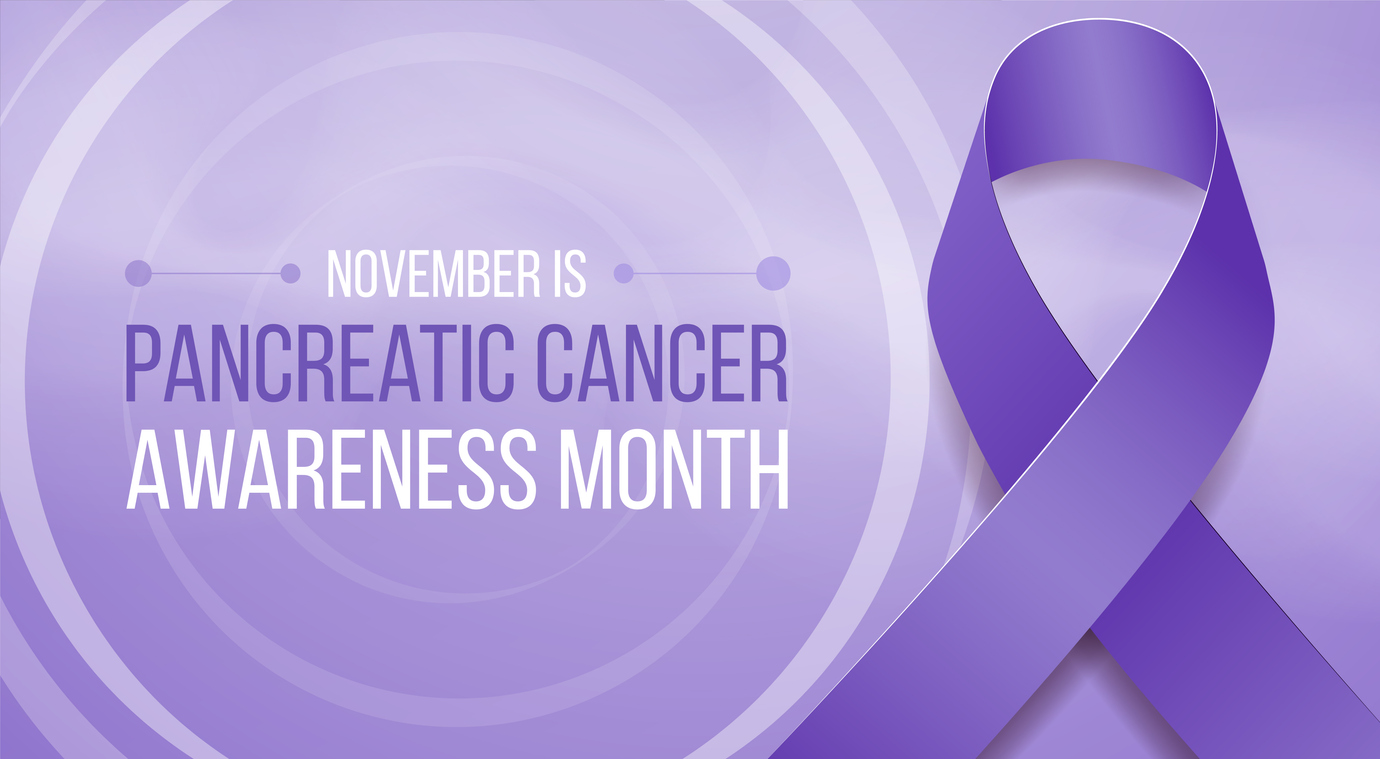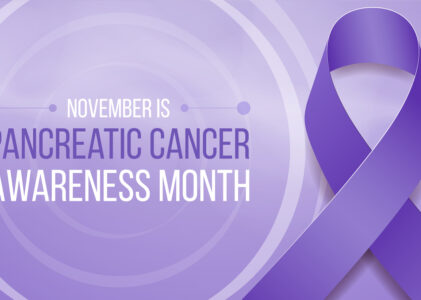
Pancreatic Cancer Awareness is recognized in November in hopes of educating the public about this type of cancer, symptoms to look for, and early detection practices. Like with most cancers, early detection can mean the difference between life and death. It is important that you see your doctor regularly and report any sudden changes in your health.
Pancreas Functions
 The pancreas is an organ that is approximately 6 inches long and lies in the abdomen between the spine and the stomach. It serves different exocrine and endocrine functions for the body, such as secreting proteins into body tissues and the bloodstream. It also releases pancreatic or digestive enzymes into the small intestine (exocrine function). The blood sugar-regulating chemicals insulin, which lowers blood sugar, and glucagon, which raises blood sugar, are produced by islet cells and sent into the bloodstream. This process is known as the endocrine function.
The pancreas is an organ that is approximately 6 inches long and lies in the abdomen between the spine and the stomach. It serves different exocrine and endocrine functions for the body, such as secreting proteins into body tissues and the bloodstream. It also releases pancreatic or digestive enzymes into the small intestine (exocrine function). The blood sugar-regulating chemicals insulin, which lowers blood sugar, and glucagon, which raises blood sugar, are produced by islet cells and sent into the bloodstream. This process is known as the endocrine function.
Pancreatic adenocarcinoma accounts for more than 90% of cases of pancreatic cancer (PDAC). The pancreas’ exocrine tissue, which produces digestive enzymes, is where these tumors grow. The less common neuroendocrine tumors (NETs) of the pancreas form in islet cells, which are endocrine cells that produce hormones. The median age of diagnosis for neuroendocrine tumors is typically
younger, and they have a better prognosis.
Risk Factors
While scientists are still completely unsure if genetic mutations or certain genes make a person more susceptible to a pancreatic cancer diagnosis, there are risk factors that have been shown to increase your chances. Having risk factor(s) does not mean you will develop cancer of the pancreas, just like a person with no risk factors can still get cancer. Risk factors for pancreatic cancer include:
- Using tobacco
- Obesity
- Diabetes
- Family History
- Chronic Pancreatitis
Pancreatic Cancer Symptoms
The signs of pancreatic cancer are frequently extremely subtle or may be mistaken for those of other illnesses. Pancreatic cancer in its early stages, sometimes exhibits no symptoms, making diagnosis and treatment challenging. It is always important to discuss any symptoms you may have with your doctor, including:
- Abdominal or back pain or discomfort
- Vomiting or nausea
- Jaundice or related symptoms
- Digestive issues
- Decreased appetite or weight loss
Feeling lethargic and overly tired is a symptom during every stage of pancreatic cancer, so you must notify your healthcare provider if you notice a decrease in your energy level.
Pancreatic Cancer
An estimated 64,050 Americans will be diagnosed with pancreatic cancer in 2023, and a staggering 50,000+ will lose their life because of the disease. Pancreatic cancer is the 3rd leading cause of death related to cancer in the United States, behind lung and colon cancer. The survival rate is a mere 12% for every stage combined at the 5-year mark. This is an alarming and heartbreaking statistic.
Treatment Options
Patients with pancreatic cancer may get chemotherapy, radiation therapy, immunotherapy, targeted therapy, or surgery. You might be given one of these treatments or a combination of treatments. The tumor’s location in your pancreas, whether the cancer has spread, your age, and your overall health are the major determinants of the best course of action for you.
Currently, pancreatic cancer can only be cured if it is detected in the early stages before it has spread to other organs or parts of the body. Doctors can use magnetic resonance imaging (MRI) to help diagnose pancreatic and other cancers because sometimes tumors may not appear on other types of scans.
Greater Waterbury Imaging Center (GWIC) understands the importance of early cancer detection and the impact it has on your health. Our team of compassionate technicians cares deeply about your overall health and well-being and works with your healthcare team to provide you with exceptional care.
Greater Waterbury Imaging Center (GWIC) is dedicated to providing you with exceptional care and MRI services from our team of highly trained and compassionate technologists. We encourage you to inform your doctor of any cancer symptoms or health risks you may have so you can increase your chances for early detection. Contact us to learn more about our MRI services and early cancer detection.


